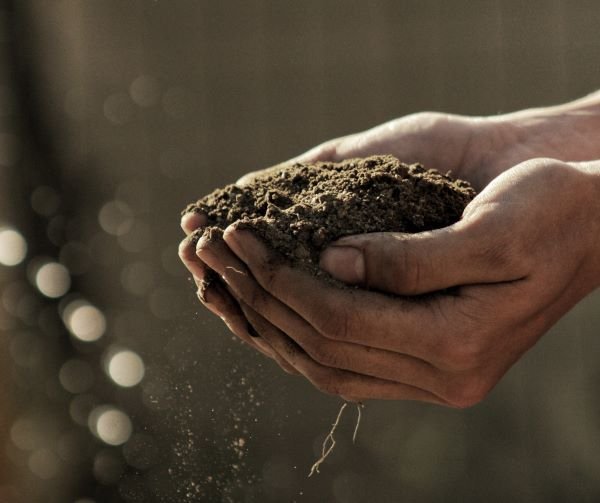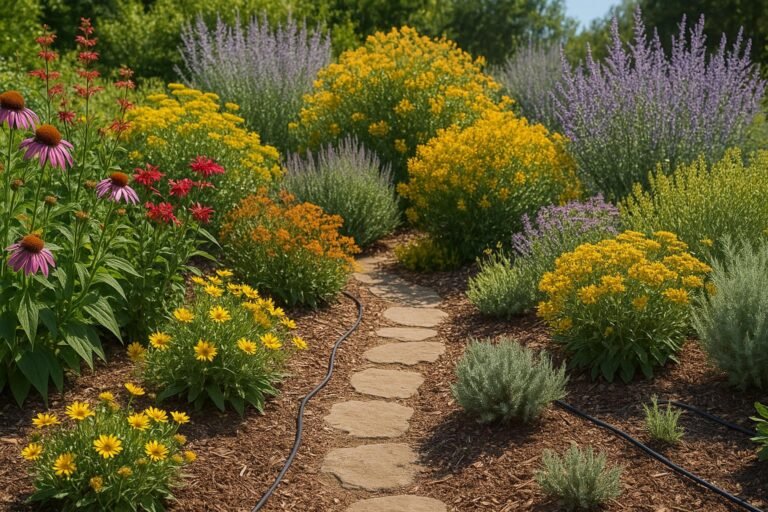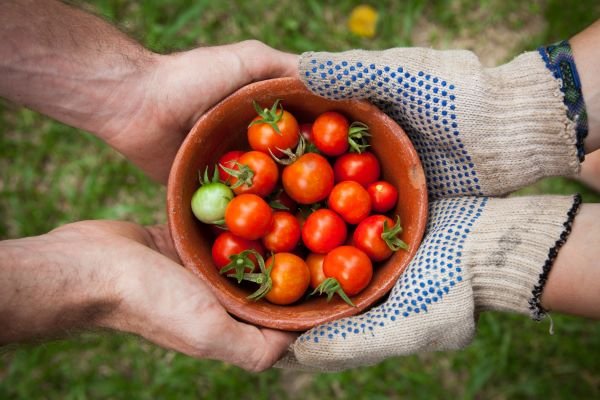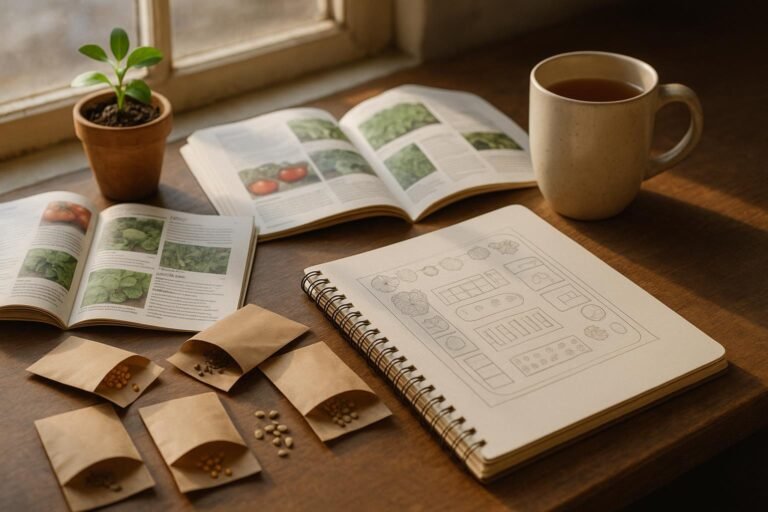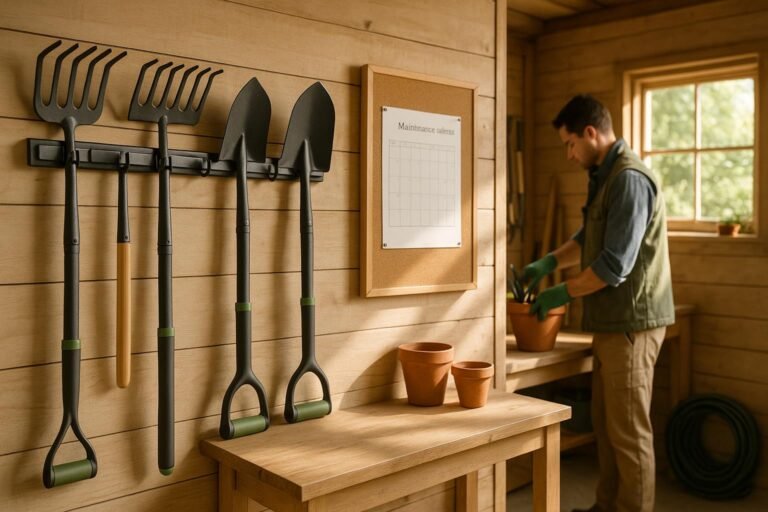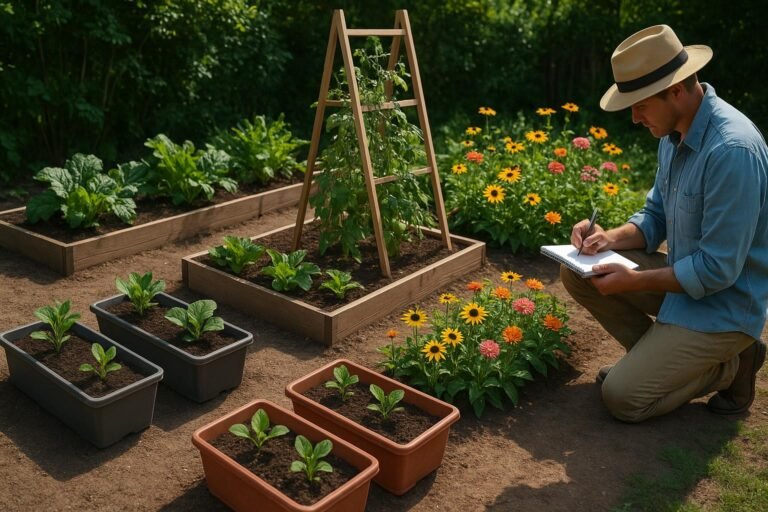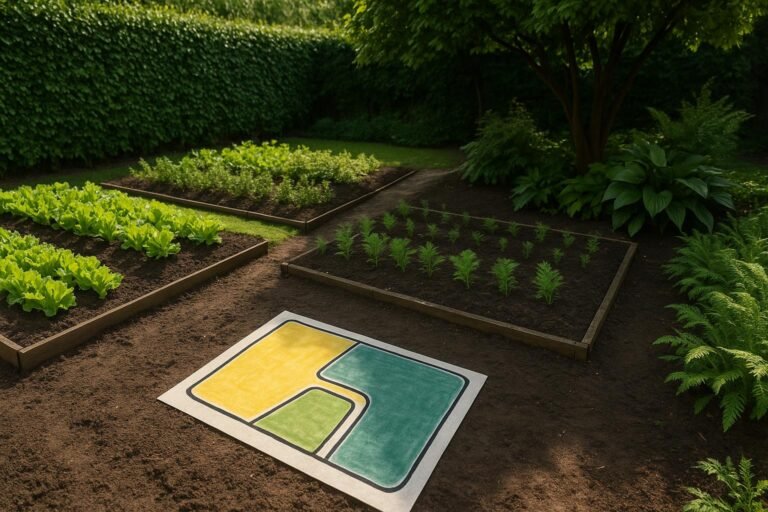Organic Soil: The Foundation of a Thriving Garden
The key to a successful garden is the soil beneath it. Gardeners are now turning to an organic soil strategy to get the most out of their plants and gardens. Learn about this nutrient-rich soil and its role in organic gardening, and discover how to create the perfect foundation for your green paradise.
Unearthing the Secrets of Organic Soil
Organic soil is much more than just dirt; it’s a living, breathing ecosystem teeming with life. It’s the blend of minerals, organic matter, water, air, and countless microorganisms that provide plants with the essential nutrients they need.
Why Nutrient-Rich Soil Matters
Supports Plant Growth
Nutrient-rich soil plays a crucial role in supporting plant growth. By providing essential nutrients such as nitrogen, phosphorus, and potassium, plants are able to develop strong and healthy root systems, enabling them to absorb water and nutrients efficiently. Additionally, these nutrients are essential for various biological processes within the plant, promoting overall growth and development.
Boosts Resistance
Nutrient-rich soil acts as a natural defense mechanism for plants against diseases, pests, and environmental stresses. When plants receive a balanced supply of nutrients, they become more resilient and better equipped to withstand unfavorable conditions. This enhanced resistance helps plants resist common diseases and fend off pests, contributing to their long-term survival and productivity.
Promotes Root Health
Adequate nutrient levels in the soil are vital for promoting root health. Nutrients such as calcium, magnesium, and iron contribute to the development of strong and robust root systems. These nutrients assist in root elongation, branching, and overall root structure, ensuring efficient absorption of water and minerals from the soil. Healthy roots are essential for plant vitality, as they provide anchorage and transport nutrients throughout the entire plant.
Composting: Nature’s Recycling System
Composting is a key part of organic gardening. It turns things like food scraps and yard waste into humus, which helps the soil. This adds good microbes and more nutrients to the soil, making it great for growing plants.
Natural Fertilizers: Feeding the Soil
In recent years, the use of natural fertilizers has gained significant attention for its role in sustainable agriculture and healthy soil management. By incorporating natural fertilizers into their composting systems, you can significantly improve soil fertility, enhance plant growth, and contribute to a more sustainable and eco-friendly gardening experience.
Manure
Manure plays an essential role in composting, as it serves as a rich source of nutrients for the decomposition process. The organic matter in manure is broken down by microorganisms, releasing vital nutrients such as nitrogen, phosphorus, and potassium into the compost. These elements are crucial for plant growth and contribute to a healthy soil ecosystem. Different types of manure, such as horse, cow, and poultry manure, can be used for composting, each with their own unique nutrient profile and decomposition rates. The integration of manure in compost not only minimizes waste but also promotes sustainable agriculture by revitalizing soil fertility and improving plant growth.
Green Manure
Incorporating green manure crops such as legumes, grasses, and other plants into the composting process enhances the nitrogen content, essential nutrients, and organic matter in the soil. This practice not only improves soil structure and aeration but also helps in moisture retention, reducing erosion and supplementing beneficial microorganisms. By using green manure in composting, farmers can reduce their reliance on chemical fertilizers, thus ensuring a healthier and more eco-friendly agricultural environment.
Worm Castings
Worm castings play a crucial role in the process of composting, providing a rich, nutrient-dense organic matter that improves soil structure and fertility. As worms break down decomposing plant wastes and other organic materials, they produce a natural byproduct called worm castings, also known as vermicompost. This substance serves as an effective soil amendment packed with beneficial microorganisms and essential nutrients such as nitrogen, phosphorus, and potassium. The addition of worm castings to compost promotes healthier plant growth, enhances soil aeration and water retention, and reduces the need for chemical fertilizers. In turn, this fosters a more sustainable and eco-friendly approach to gardening and agriculture.
Improving Soil Texture
Improving soil texture in organic soil is essential for healthy plant growth and increased crop yield. One effective method is incorporating organic matter, such as compost or well-aged manure, into the soil. This helps to improve soil structure by increasing its ability to retain moisture and nutrients. Additionally, adding soil amendments like gypsum or lime can help to balance soil pH and improve its overall texture. Regularly practicing mulching with organic materials, such as straw or wood chips, can also help to enhance soil texture by promoting moisture retention and preventing soil erosion. By implementing these practices, organic soil can be enriched, leading to improved plant health and better overall soil fertility.
Soil Health: Beyond Just Nutrients
A garden is only as healthy as its soil. Soil health isn’t just about nutrients; it’s also about the balance of organisms living within. By nurturing beneficial microbes and worms, organic gardeners can enhance the soil’s fertility, structure, and resilience.
Organic soil is like nature’s orchestra, where each part plays a crucial role in making a balanced environment. This includes the nutrient storage from composting, the enhancement from natural fertilizers, and the stability given by organic matter. Remember, when you work in the soil, you are touching the heart of your garden.
Check Out my other blog posts:
Check out my other websites:
For woodworking enthusiasts – JLH-Rentals.com
Interested in travel to Europe – GramAndPapTravel.com
